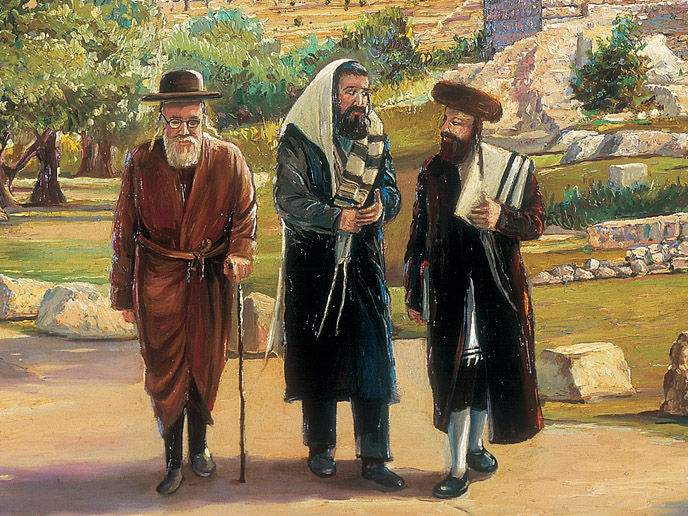Why Was Judas Called “Iscariot”?
Introduction
The name Iscariot often raises curiosity. Many wonder if it was the name of Judas’s father, a personal surname, or something else. A closer look at Scripture and historical context reveals that Iscariot was not a personal name at all—but rather, a reference to Judas’s origin. Understanding this name gives us not only clarity but also important theological insights into identity, character, and God’s knowledge of individuals.
The Meaning of “Iscariot”
The word Iscariot likely comes from the Greek “Iskariōtēs” (Ἰσκαριώτης), which itself is derived from Hebrew/Aramaic. Scholars agree it means “man of Kerioth” or “from Kerioth.”
-
“Ish” (אִישׁ) in Hebrew means “man of”
-
“Kerioth” is a town mentioned in the Old Testament (Joshua 15:25)
Thus, Judas Iscariot means “Judas, man of Kerioth.”
Kerioth was a town located in the southern part of Judah (Joshua 15:25), though some references like Jeremiah 48:24 and Amos 2:2 associate a place called Kerioth with Moab, east of the Jordan River. If Judas was indeed from the Moabite Kerioth, it might suggest non-Israelite lineage—though this remains debated. Either way, the name functioned as a geographical identifier.
Why Not Just “Judas”?
The name Judas (Greek: Ioudas) was common in Jewish culture, derived from Judah, one of the twelve tribes of Israel. Among Jesus’ disciples, there were at least two Judases:
-
Judas Iscariot, the betrayer
-
Judas (son of James), also called Thaddaeus (Luke 6:16)
To avoid confusion, New Testament writers often used surnames, nicknames, or place-based identifiers. Similarly:
-
Simon Peter was distinguished from Simon the Zealot (Matthew 10:2–4)
-
Mary Magdalene was identified by her town, Magdala (Luke 8:2)
So, Judas Iscariot was identified by his origin—Kerioth—to distinguish him from the other Judas.
Was Judas’s Father Also From Kerioth?
Scripture hints at this.
John 6:71 (NIV): “He meant Judas, the son of Simon Iscariot, who, though one of the Twelve, was later to betray him.”
This verse shows that even Judas’s father, Simon, was known as “Iscariot,” meaning the family likely hailed from Kerioth.
This reinforces the cultural tradition of associating people with their hometowns.
The Theological Angle: God Knows Us by Name and Nature
Names in Scripture often carry spiritual or prophetic weight. In both Old and New Testaments, names reveal identity, calling, or character:
-
Abram becomes Abraham, meaning “father of many” (Genesis 17:5)
-
Jacob becomes Israel, meaning “he struggles with God” (Genesis 32:28)
God not only knows us by name but by our inner character.
Exodus 33:17 (NIV):
“And the Lord said to Moses, ‘I will do the very thing you have asked, because I am pleased with you and I know you by name.’”
This “knowing” isn’t just intellectual—it’s relational and moral. In Scripture, God often “knows” someone based on their heart and walk with Him. That’s why someone may be known as “a man after God’s own heart” (1 Samuel 13:14), while others are remembered for betrayal, deceit, or rebellion.
Character Determines Legacy
Judas Iscariot’s name has become synonymous with betrayal. His physical origin—Kerioth—is now overshadowed by his moral failure. His story reminds us that where you come from matters less than who you choose to become.
John 13:2 (NIV):
“The evening meal was in progress, and the devil had already prompted Judas, the son of Simon Iscariot, to betray Jesus.”
Jesus Himself chose Judas knowing his role in prophecy (John 6:64). Yet Judas’s decision to betray Christ was his own. His actions became part of his spiritual identity.
Final Reflection: What Does God Call You?
In God’s eyes, each person is identified not just by their earthly name or place of birth—but by their character, their faith, and their relationship with Him.
May we be known in heaven as:
-
Faithful servants (Matthew 25:21)
-
Friends of God (James 2:23)
-
People after God’s own heart (Acts 13:22)
Let us pray that our names are associated with righteousness, not rebellion.
Revelation 3:5 (NIV):
“The one who is victorious will, like them, be dressed in white. I will never blot out the name of that person from the book of life, but will acknowledge that name before my Father and his angels.”
Maranatha – The Lord is Coming.









